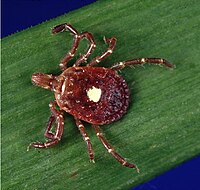
Cat ownership and Proximity to Significant Ecological Areas Influence Attitudes Towards Cat Impacts and Management Practices
Sign Up to like & getrecommendations! Published in 2020 at "Environmental Management"
DOI: 10.1007/s00267-020-01289-2
Abstract: Cat ownership is increasing globally, representing a growing threat to urban wildlife. Although some cities have policies and strategies for managing owned cats, the companionship value placed on cats makes such management contentious. Prioritizing cat… read more here.
Keywords: cat impacts; cat ownership; sea; management ... See more keywords

Curiosity killed the cat: no evidence of an association between cat ownership and psychotic symptoms at ages 13 and 18 years in a UK general population cohort
Sign Up to like & getrecommendations! Published in 2017 at "Psychological Medicine"
DOI: 10.1017/s0033291717000125
Abstract: Background Congenital or early life infection with Toxoplasma gondii has been implicated in schizophrenia aetiology. Childhood cat ownership has been hypothesized as an intermediary marker of T. gondii infection and, by proxy, as a risk… read more here.
Keywords: ages years; cat ownership; age; evidence ... See more keywords

To the editor: how statistics killed the cat: conclusion
Sign Up to like & getrecommendations! Published in 2017 at "Psychological Medicine"
DOI: 10.1017/s0033291717001891
Abstract: (1) We agree that the study was an attempt to look for an association between cat ownership in childhood and self-reported psychotic-like experiences in adolescence rather than diagnosed schizophrenia. (2) We agree that the initial… read more here.
Keywords: association; social class; strength association; cat ownership ... See more keywords

Clinical characteristics of cat sensitized adults, cat ownership and cat owners' attitudes.
Sign Up to like & getrecommendations! Published in 2022 at "Allergy and asthma proceedings"
DOI: 10.2500/aap.2022.43.220066
Abstract: Background: Cat allergen sensitization is a significant risk factor for allergic rhinitis and asthma. There are insufficient data on the preferences and attitudes of cat owners who have a cat allergy. Objective: To investigate the… read more here.
Keywords: cat owners; owners attitudes; cat ownership; clinical characteristics ... See more keywords

Cat Ownership and Rural Residence Are Associated with Lyme Disease Prevalence in the Northeastern United States
Sign Up to like & getrecommendations! Published in 2022 at "International Journal of Environmental Research and Public Health"
DOI: 10.3390/ijerph19095618
Abstract: Lyme disease (LD) is the most common vector-borne disease in the USA. Beyond its tick-borne nature, however, risk factors for LD are poorly understood. We used an online questionnaire to compare LD patients and non-LD… read more here.
Keywords: disease; lyme disease; cat ownership; rural residence ... See more keywords